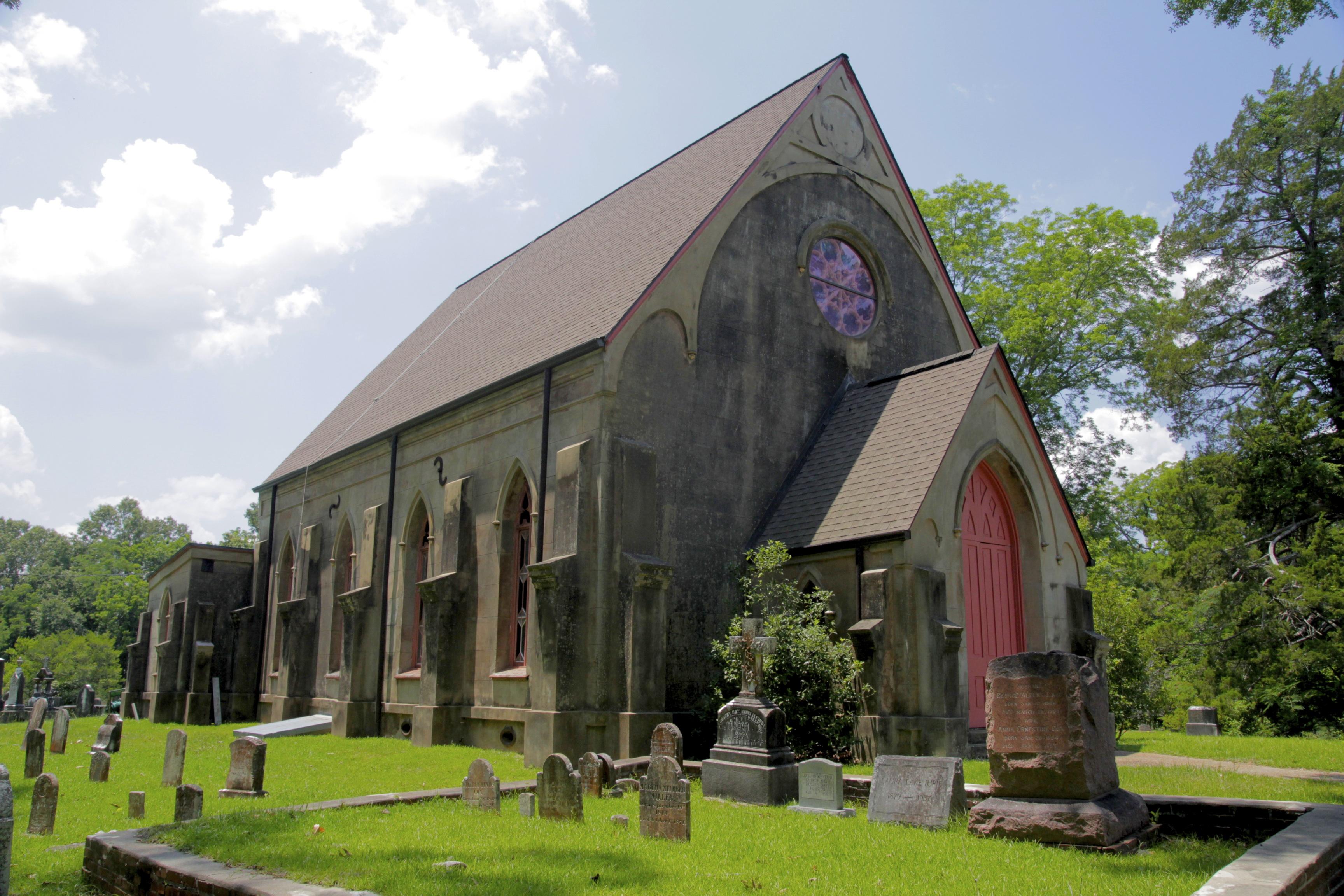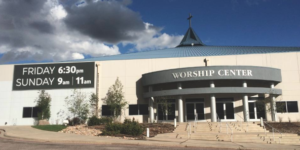This morning, on the way home from a weekend at the beach with friends, Allison and I listened to a podcast from a large church in Colorado. The speaker, a pastor named Daniel, talked about the Trinity and how each one of us are invited into a divine dance where we are free to partake of the love that never ends. This provoked an excellent conversation as we drove across Delaware.
A few hours later, we arrived at a small church in Pennsylvania (which looked much like the one above), where Allison was meeting with the missions board after the contemporary service. This church was very different than the one in Colorado. In fact, the two churches could be considered opposites on the theological spectrum. On the surface, these two churches had nothing in common. I doubt either even knew the other existed. But the second worship song at the church in Pennsylvania was co-written by another pastor from the large church in Colorado, a guy by the name of Glenn. In that moment, as I stood in the fellowship hall of a mainline, liturgical church that was making an effort to be contemporary, I realized that we are much more connected than we think we are.
After worship, the pastor asked if anyone had any prayer requests. One man in the back row asked us to remember the two firefighters killed the night before in Delaware. He was nearly in tears.
What fire in Delaware? I thought to myself.
I pulled my phone out of my pocket. Moments later, I learned that the men had died when the second floor of a row house collapsed on top of them. I had driven through Wilmington that morning, but had no idea that this had taken place.
As the prayer time went on, the pastor asked us to remember a man who was dying of cancer. He had been a member of the church for years, but had moved to Boston ten years before.
I was stunned. You mean this guy left the church a decade ago and he’s being talked about like a dear family friend? Having spent the past several years at large churches, this was totally foreign to me.
There has been an ongoing discussion about whether large or small churches are better. But as I sat in the fellowship hall of the small church in Pennsylvania, I realize this discussion is totally pointless. The truth is, we need both large and small churches.
I love that I was able to listen to a podcast from a church in Colorado as I was driving through Delaware to attend a church in Pennsylvania. I loved that we were able to worship God at the church in Pennsylvania because of the songwriting of a pastor from the church in Colorado. I loved that one church reached a lot of people with the Gospel, while the other church journeyed deep into the Gospel with a hundred or so people over several decades. I believe this is something Eugene Peterson would refer to as “A long obedience in the same direction.”
Beyond this, what I loved even more was that the two churches were so different, yet essentially the same. Sure, one was Charismatic and the other was Reformed. One was relatively conservative and the other was a bit more liberal. One had a large following, while the other had a faithful few. One was founded in 1984; the other, 1811. One had the lights dimmed; the other opted for florescents. One pastor wore jeans, while the other wore a full suit. And the sermons themselves were totally different styles. But what stood out to me above all this is how similar both churches were: they both desired to make their communities better, and they both talked about Jesus a lot, as if these two things were connected.
After the service at the church in Pennsylvania, I sat in on Allison’s meeting with the missions board. I learned that this church was involved in many different ministries, both worldwide and in the city and suburbs of Philadelphia. They held food drives, ministered to the homeless, collected books for veterans and soldiers overseas, supported a home for troubled teenage girls, sponsored seventeen children around the world through Compassion, and assembled hygiene kits for World Vision. In a world where some of us waste time arguing about whether to support these last two organizations, they were doing what they could with what they had for both. This church even picked up trash along a two-mile stretch of highway leading into their town, a non-glamourous act of service that they will probably never receive public recognition for doing.
Though many people may drive past this church each day without giving it a second glance, it was clear that it played a vital role in the community, that the community would suffer if it were not there.
During the podcast from the church in Colorado, Daniel talked about how there is never any division between the members of the Trinity, which is why they are able to “dance” with each other in divine harmony for all of eternity. After it was over, Allison and I realized that if there was no division in this dance and we have been invited into it, there should be no division between us either. We talked about Jesus’ prayer in the garden before His death, how He prayed that we would all be one in the same way that He and the Father are one (John 17:20-23). And He doesn’t stop there; He goes on to say that when we finally reach a place of complete unity the world will stop thinking we are a bunch of freaks and realize the love we possess is not of this world.
We also talked about this guy named David who captivated the heart of God. He once wrote about how good and pleasant it is when we all get along and stop trashing one another on Facebook. He said when we can lay down our need to be right and prefer one another in love, God actually commands a blessing to come down upon us (Psalm 133).
It was at that moment when this thought crossed my mind: Perhaps the big secret of the Bible, both Old and New Testaments, is the world will know we are legit when we stop making our fellow brothers and sisters in Christ our enemies. Because even if the Christian who doesn’t possess the flawless doctrine that we do is our enemy, Jesus said we are supposed to love them (Matthew 5:44).
And this, friends, is the reason why we need large and small churches.
Perhaps love really is all we need.

